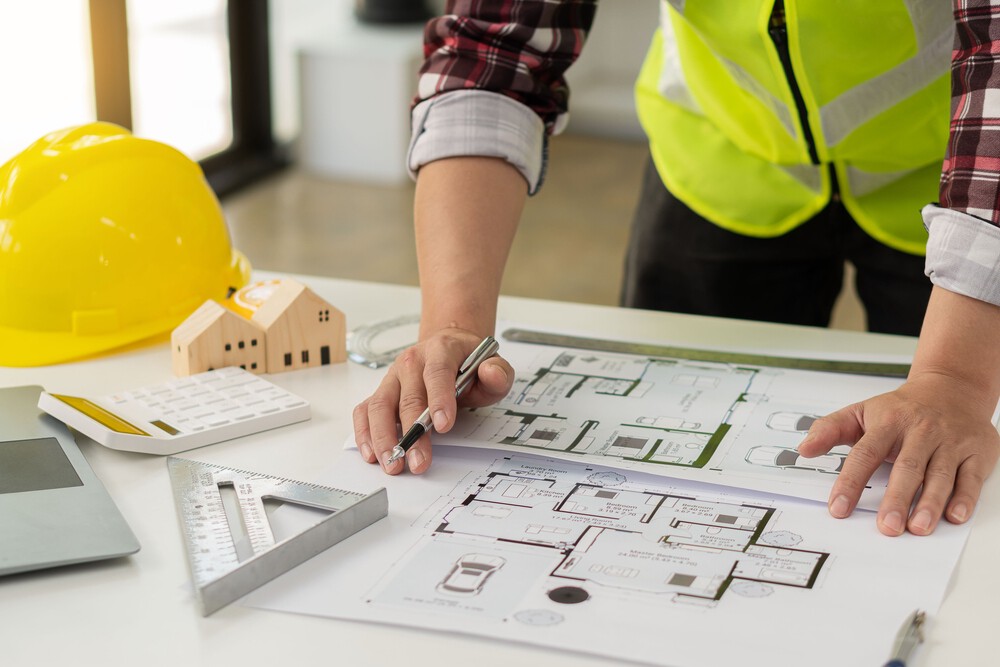Understanding the Construction Industry
The construction industry is a complex and multifaceted sector that involves various stakeholders, including contractors, subcontractors, architects, and clients. Each party has its own interests and obligations, often leading to disputes that can arise at any stage of a project. These disputes may stem from contract disagreements, delays, or issues related to quality and safety standards.
Given the intricate nature of construction projects, the potential for conflict is significant. As a result, having a solid understanding of the legal frameworks governing construction is essential for all parties involved. This is where construction lawyers play a pivotal role.
The Importance of Legal Expertise
Construction lawyers possess specialised knowledge of the laws and regulations that govern the construction industry. They are well-versed in contract law, construction regulations, and dispute resolution mechanisms. This expertise allows them to provide invaluable guidance to their clients, helping them navigate the complexities of construction disputes.
Without legal expertise, parties may struggle to understand their rights and obligations, leading to costly mistakes and prolonged disputes. Construction lawyers can help mitigate these risks by ensuring that contracts are clear, comprehensive, and enforceable.
In addition to their role in dispute resolution, construction lawyers also play a crucial part in the planning and execution phases of construction projects. They assist in drafting and reviewing contracts to ensure that all terms are fair and equitable, which can prevent misunderstandings later on. Furthermore, they can advise on compliance with local regulations and safety standards, which is particularly important in an industry where safety is paramount. By providing this level of support, construction lawyers not only protect their clients’ interests but also contribute to the overall efficiency and success of construction projects.
Moreover, the construction industry is constantly evolving, with new technologies and methodologies emerging regularly. This dynamic environment means that legal professionals must stay abreast of industry trends and changes in legislation. For instance, the rise of sustainable building practices and green technologies has introduced new legal considerations that construction lawyers must navigate. Their ability to adapt to these changes ensures that clients receive the most relevant and effective legal advice, enabling them to remain competitive in a rapidly changing market.
Common Types of Disputes in Construction
Disputes in the construction industry can take many forms. Understanding the most common types can help stakeholders prepare and respond effectively when issues arise.
Contractual Disputes
Contractual disputes are among the most prevalent issues in construction projects. These disputes often arise from ambiguities in contract terms, disagreements over scope of work, or failure to meet deadlines. Construction lawyers can assist in drafting and reviewing contracts to minimise the risk of such disputes occurring.
When a contractual dispute does arise, a construction lawyer can help interpret the contract and advise on the best course of action, whether it involves negotiation, mediation, or litigation.

Delay and Disruption Claims
Delays in construction projects can lead to significant financial losses. When one party causes a delay, the affected party may seek compensation for the additional costs incurred. These claims can be complex, often requiring detailed documentation and expert testimony to substantiate the claims.
Construction lawyers are adept at handling delay and disruption claims. They can help clients gather the necessary evidence, assess the validity of claims, and negotiate settlements where appropriate.
Quality and Safety Issues
Quality and safety are paramount in construction. Disputes can arise when work does not meet the required standards or when safety regulations are violated. Such disputes can have serious implications, not only for the parties involved but also for public safety. Click here to get about: Thoughtful father’s day gift hampers Australia-wide.
Construction lawyers can assist clients in addressing these issues by ensuring compliance with relevant laws and regulations. They can also represent clients in disputes related to safety violations or substandard work, helping to protect their interests and mitigate potential liabilities.
The Role of Construction Lawyers in Dispute Resolution
Construction lawyers play a crucial role in resolving disputes efficiently and effectively. Their involvement can help minimise the impact of disputes on ongoing projects and relationships between parties.
Negotiation and Mediation
Many construction disputes can be resolved through negotiation or mediation, which are often less adversarial and more cost-effective than litigation. Construction lawyers are skilled negotiators who can advocate for their clients’ interests while seeking to reach a mutually beneficial resolution.
Mediation, in particular, can be an effective way to resolve disputes without escalating to formal legal proceedings. A construction lawyer can guide clients through the mediation process, helping them articulate their positions and explore potential compromises.
Arbitration and Litigation
In cases where negotiation or mediation fails, arbitration or litigation may be necessary. Construction lawyers are equipped to represent clients in these more formal dispute resolution processes. They can prepare the necessary documentation, present evidence, and argue on behalf of their clients in front of arbitrators or judges.
Arbitration is often preferred in the construction industry due to its relative speed and confidentiality compared to traditional court proceedings. However, litigation may be unavoidable in certain circumstances, and having a knowledgeable construction lawyer can make a significant difference in the outcome.
Preventative Measures and Risk Management
While disputes are often inevitable in the construction industry, there are steps that can be taken to minimise their occurrence and impact. Construction lawyers play a vital role in implementing preventative measures and risk management strategies.
Contract Drafting and Review
One of the most effective ways to prevent disputes is through careful contract drafting and review. Construction lawyers can ensure that contracts are clear, comprehensive, and tailored to the specific needs of the project. This includes defining roles and responsibilities, outlining payment terms, and establishing procedures for handling disputes.
By addressing potential issues upfront, construction lawyers can help clients avoid misunderstandings and conflicts later in the project lifecycle.
Training and Compliance
Another important aspect of risk management is ensuring that all parties involved in a construction project are adequately trained and compliant with relevant laws and regulations. Construction lawyers can provide training on legal obligations, safety standards, and best practices, helping to foster a culture of compliance within the organisation.
By promoting awareness and understanding of legal requirements, construction lawyers can help reduce the likelihood of disputes arising from non-compliance or misunderstandings.
Choosing the Right Construction Lawyer
Experience and Specialisation
It is essential to choose a lawyer with experience in construction law specifically. This includes a deep understanding of the unique challenges and nuances of the industry. A lawyer who has handled similar disputes in the past will be better equipped to provide effective representation and advice.

Additionally, consider the lawyer’s track record in dispute resolution. A lawyer with a history of successful outcomes in arbitration or litigation may be more likely to achieve favourable results for their clients.
Communication and Rapport
Effective communication is vital in any legal relationship. A construction lawyer should be able to explain complex legal concepts in a way that is easy to understand. They should also be responsive to client inquiries and provide regular updates on the progress of the case.
Building rapport with a lawyer can also enhance the working relationship. Clients should feel comfortable discussing their concerns and asking questions. A lawyer who takes the time to understand their client’s needs and priorities will be better positioned to advocate on their behalf.
Conclusion
The role of construction lawyers in navigating disputes is indispensable in the complex landscape of the construction industry. Their expertise in contract law, dispute resolution, and risk management equips them to provide valuable support to clients facing a variety of challenges.
By understanding the common types of disputes, the dispute resolution process, and the importance of preventative measures, stakeholders can better prepare themselves for potential conflicts. Choosing the right construction lawyer can significantly impact the outcome of disputes, making it essential for parties involved in construction projects to invest time and effort in this critical decision.
Ultimately, the involvement of construction lawyers not only helps resolve disputes but also fosters a more collaborative and compliant construction environment, benefiting all parties involved.
